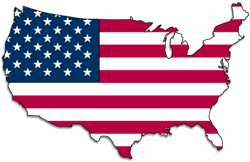22 August 2021
By Roger Jones
roger@TheCork.ie

You’re probably wondering whether CBD is legal, why it is legal, and what makes it different from THC. Turns out, there are a lot of misconceptions about cannabis and CBD in the United States. The legality of CBD is one of the most commonly asked questions by cannabis users, and it can be a tricky question to answer. While some say that CBD is legal in all 50 US states, this isn’t entirely true. And as with anything else, the freedom of use can result in the abuse of products and medications that are actually meant to treat sickness. There are many factors to consider when deciding if you can buy or use CBD legally and we will cover them below.
What is CBD?
Cannabidiol is one of 113 identified cannabinoids in cannabis plants, and it was discovered as far back as 1940. It is a naturally occurring compound that is produced by hemp and is used in a number of products like oils, tinctures, vapes, lotions, and even edibles. Online cannabis stores, like https://cannacabana.com/ offer a great variety of CBD products, and no matter what your preferences are when it comes to CBD, you will find it there. You can base your choice on a device design you like, a consumption method, or even a taste you prefer – there is something for everyone.
Unlike its cousin THC, CBD is non-psychoactive which means it will not produce the same high sensation that you would get from THC. CBD has exploded on the market due to its medicinal and healing properties in a wide range of ailments. Consumers swear by its abilities to reduce chronic pain, improve depression and anxiety, and even aid better brain function. Thanks to innovation and creativity, consumption methods have become very diverse, and taking CBD in its edible form has become extremely popular due to its slower release when ingested.
THC vs CBD
With over 66% of the US population having been exposed to some form of cannabis, there have been many misconceptions regarding its use, benefits, and effects. We’re going to dispel some of those. Let’s take a look at distinct similarities and differences between THC and CBD. THC is the major active ingredient in marijuana and is without a doubt very psychoactive. Like CBD, THC is available in a variety of forms and is also used to treat medical ailments. Although similar in chemical structure, THC has the downside of producing a euphoric effect, or, as we’d say on the street, it makes you high.
What Does The USA Law Say?
The passage of the US Farmers Bill in 2018 saw the legalization of hemp. While cannabis laws are constantly evolving, CBD is technically considered a schedule 1 drug under federal law. Medications with high levels of THC are legal in approximately 34 States, and several have legalized the recreational use of cannabis. In other states, however, a medical prescription may be required before using CBD products. It is well known that when America sneezes, the world catches a cold, and soon after, many countries follow suit in legalizing cannabis for recreational purposes. We strongly suggest looking at the laws applicable to your country before rushing out to get your hands on some.
Benefits it Offers
The health benefits offered by CBD products are numerous, but the only CBD medication currently approved by the FDA is Epidiolex which is used to treat Epilepsy. It is rather interesting to note that various studies and research have been conducted on a wide variety of ailments such as Alzheimer’s, Anxiety, Cancer, chronic pain, and inflammation to name a few, and all have shown positive results in the reduction and improvement of the management of these ailments with CBD. CBD is also a treatment of athletes for several conditions relating to pain and inflammation. Unlike prescribed medications such as opioids that often become addictive in addition to terrible side effects, CBD can be safely used without having to worry about dependency or reliance and is often used to wean consumers off dangerous pharmaceutical drugs.
CBD use has for the most part been legalized purely because of its medicinal benefits and the effects that it offers over a diverse range of treatments. This does however depend on the laws applicable to specific states and countries, and it is imperative to keep in mind that these laws often break down into quantities. This means that having a little more over the legal limit can still land you in hot water.
